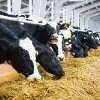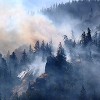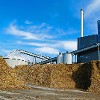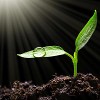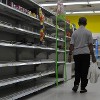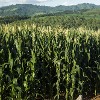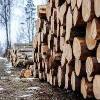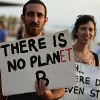2018 ESM News
Changes in agriculture could cut sector non-CO2 greenhouse gas emissions by up to 50%
The agricultural sector is the world’s largest source of non-CO2 greenhouse gas emissions, and IIASA-led research has found that changing agricultural practices and a shift in diet away from meat and dairy products could reduce the sector’s emissions by up to 50% by 2050 compared to a situation without mitigation efforts. More
European Commission long-term strategy on climate change underpinned by IIASA research
The European Commission has adopted a new long-term strategy, A Clean Planet for all, on how Europe can become climate neutral by 2050 and meet its Paris Agreement commitments, and IIASA research has contributed to the quantitative backbone. More
IIASA researchers among top 1% of most highly cited scientists
Several IIASA researchers from the Air Quality and Greenhouse Gases Program, the Energy Program, the Ecosystems Services and Management Program, and the Water Program are among the world’s most highly cited scientists, according to a new list published by Clarivate Analytics. More
Crowdsourced field data shows importance of smallholder farms to global food production
A new global field size data set collected as part of a crowdsourcing citizen science project by IIASA researchers has shown that the proportion of smallholder farms may be much larger than previously thought, contributing much more to global food production. More
Forests under threat
Options Winter 2018/19: The world’s forests are in serious trouble. IIASA researchers are exploring approaches for protecting the environment and ensuring the sustainable management of this important resource. More
A people-centered approach to limiting global warming
Options Winter 2018/19: IIASA’s Low Energy Demand scenario shows how to limit global warming to 1.5°C in a different way. More
Reducing US coal emissions through biomass and carbon capture would boost employment
Employing bioenergy with carbon capture and storage (BECCS), would not only retain 40,000 jobs currently held as part of the US coal industry but would create 22,000 new jobs in the forestry and transportation sectors by the middle of this century, according to new IIASA-led research. More
Nothing natural about nature’s steep decline: WWF report reveals staggering extent of human impact on planet
Humanity and the way we feed, fuel and finance our societies and economies is pushing nature and the services that power and sustain us to the brink, according to WWF’s Living Planet Report 2018. More
For a lower climate footprint, vegetarian diet beats local
A new study provides a more comprehensive accounting of the greenhouse gas emissions from EU diets. It shows that meat and dairy products are responsible for the lion’s share of greenhouse emissions from the EU diet. More
Reduction of soil microbes limit feedbacks in a warming climate
Soil microbes get more active in warmer temperatures, causing increased CO2 emissions. But a new study shows that in prolonged warming, the amount of microbial biomass decreases, balancing the effect. More
Paris climate targets could be exceeded sooner than expected
A new study has for the first time comprehensively accounted for permafrost carbon release when estimating emission budgets for climate targets. The results show that the world might be closer to exceeding the budget for the long-term target of the Paris climate agreement than previously thought. More
Remote islands harbor higher numbers of non-native species
Numbers of native species on islands decrease with greater remoteness, while the numbers of non-native species on islands increase, according to an international research team including IIASA researcher Florian Hofhansl. More
Climate taxes on agriculture could lead to more food insecurity than climate change itself
New IIASA-led research has found that a single climate mitigation scheme applied to all sectors, such as a global carbon tax, could have a serious impact on agriculture and result in far more widespread hunger and food insecurity than the direct impacts of climate change. Smarter, inclusive policies are necessary instead. More
IIASA researchers help EU states to assess forestry’s role in achieving climate commitments
IIASA researchers have led the development of new guidance for EU member states estimating greenhouse gas emissions and removals from their forests and developing plans to show how they will account for these emissions and removals in the future. More
IIASA signs MOU with Indonesia’s Institute Teknologi Bandung (ITB)
Researchers, scientists and experts from both sides will participate in the joint research project. IIASA will contribute its expertise on modelling while ITB makes their research Indonesia-specific. More
Brazil’s Forest Code can balance the needs of agriculture and the environment
If fully implemented, Brazil’s Forest Code, an environmental law designed to protect the country’s native vegetation and regulate land use, will not prevent growth in Brazilian agriculture, according to new IIASA-led research. More
Biorefineries will have only minimal effects on wood products and feedstocks markets
A new report from researchers from IIASA, Luleå University of Technology (LTU), and RISE Research Institutes of Sweden has shown that more biorefineries, which produce biobased fuels and chemicals, will have only a small effect on the availability and pricing of wood products and feedstocks. More
Citizen scientists across Europe can help monitor land-use change with new FotoQuest Go app
An expanded FotoQuest Go app, developed by IIASA researchers, launches today, and as well as now covering the whole of the EU rather than just Austria, it will have some other exciting new features. More
Thinking outside the box on climate mitigation
A new article lays the groundwork for alternative climate mitigation scenarios that place less reliance on unproven negative emissions technologies in the future. More

ESM News Archive
NEWS
"Climate Modernity" - The 24H Challenge: How do we want to live and act in the future in Styria ?
Health fears can increase pandemic isolation habits in older Europeans
How circular waste management systems can benefit the environment
Launch of the Northern African Applied Systems Analysis Centre
How we measure the effects of methane matters for climate policy


